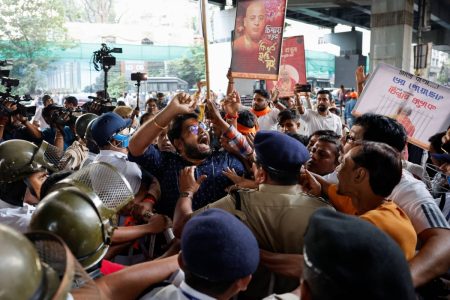In August, popular protests — and a harsh government crackdown — culminated in the military-backed ouster of Bangladeshi Prime Minister Sheikh Hasina, who lurched toward authoritarianism. But far from ushering in a democratic transition, the regime change has plunged Bangladesh into deeper turmoil, with mounting human-rights abuses and lawlessness by ascendant Islamist groups threatening to turn the country into yet another global flash point.
Hasina may have forsaken her democratic credentials once in power — in 1990, six years before she was first elected prime minister, she led the pro-democracy uprising that toppled Bangladesh’s military ruler — but the “iron lady” also kept both the powerful military and Islamist movements in check.
As South Asia has seen firsthand, military-backed regimes tend to crush anti-government protests, whereas militaries with unfulfilled ambitions might facilitate violent unrest to create a pretext to swoop in, seize power and “restore order.” Bangladesh’s military refused to enforce a lockdown even as protesters rampaged through the streets, and as soon as Hasina was gone, it installed an interim administration. Tellingly, the military packed her off to India even before she could formally resign.

